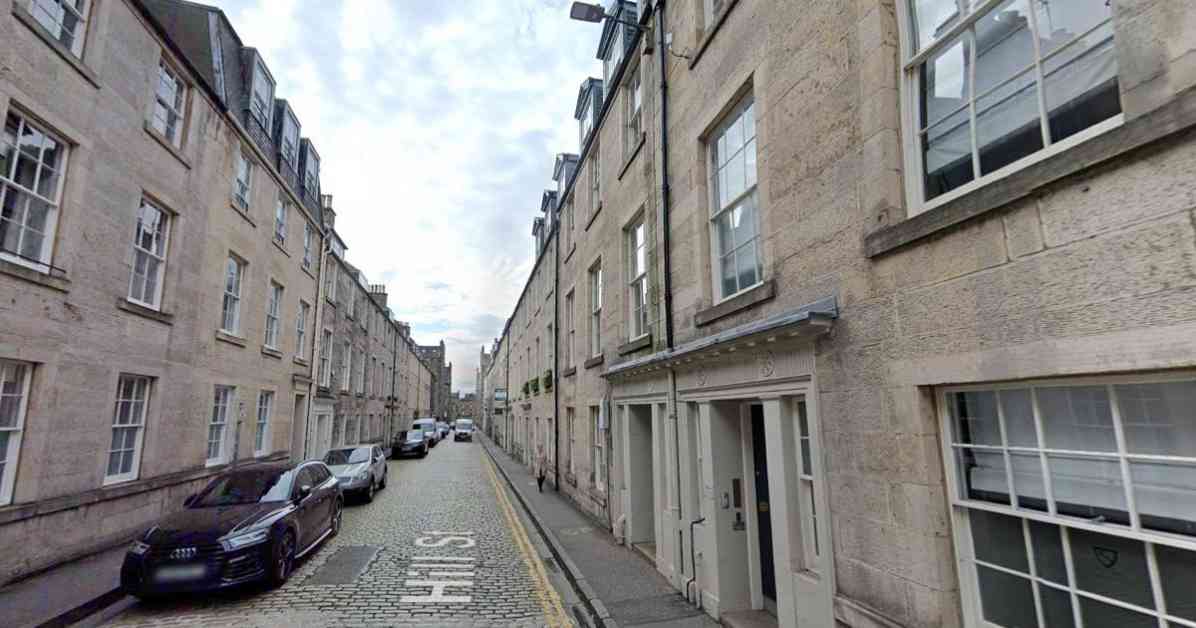Plans for a seven-bedroom holiday let in Edinburgh city centre are facing rejection by council planners, despite the property having operated as a short-term let for the past 10 years. The owner of 4 Hill Street, located between North Castle Street and Frederick Street, recently submitted a change of use application to the council in hopes of officially converting the residential flat into a short-term let. Despite receiving 20 letters of support from the local area, the proposals have been recommended for refusal during this week’s development management sub-committee meeting.
The A-listed building, a terraced townhouse spanning three floors and featuring seven bedrooms, currently offers main door access from Hill Street with no shared garden or amenity space. The owner submitted the short-term let application to the council, even though the property has been operating as a holiday let since 2014 with no internal or physical changes proposed. In fact, back in December 2005, the property had obtained permission for a change of use to a boutique bed and breakfast, although this was never pursued.
While the final decision rests with the councillors at the upcoming meeting, planners have expressed concerns about the loss of residential accommodation not being justified. They emphasized that although the proposal meets certain planning regulations and does not harm the listed building or its setting, the preservation of the conservation area is a priority. In their assessment, planners stated, “The change of use of this property to a short-term let is acceptable in terms of neighboring amenity. However, the loss of residential accommodation has not been justified. While there is an economic benefit to the city from tourist accommodation, in this case, it does not outweigh the adverse impact on the loss of residential accommodation.”
Challenges and Considerations
The rejection of the proposal for the holiday let at 4 Hill Street highlights the challenges faced by property owners and local authorities in balancing the needs of residents and tourists in popular city center locations. With the rise of platforms like Airbnb and the increasing demand for short-term accommodation, cities like Edinburgh are grappling with how to regulate and manage the impact on housing availability and affordability.
The case of 4 Hill Street raises questions about the sustainability of converting residential properties into short-term lets, especially in areas where housing stock is already limited. The concerns raised by council planners about the loss of residential accommodation not being justified reflect broader debates around the prioritization of housing for residents over tourist accommodation.
Community Support and Opposition
Despite receiving 20 letters of support from the local area, the proposal for the holiday let at 4 Hill Street is facing rejection from council planners. The conflicting viewpoints from the community highlight the complex nature of balancing the interests of residents, property owners, and tourists in city center locations.
The letters of support from the local area likely emphasize the economic benefits of tourism and short-term accommodation for the city, such as increased footfall in local businesses and job creation. However, the concerns raised by council planners about the loss of residential accommodation and the impact on the character of the neighborhood suggest a need for careful consideration and regulation of holiday lets in Edinburgh.
Future Implications and Decision-Making
The final decision on the proposal for the holiday let at 4 Hill Street will have implications for future developments and conversions of residential properties in Edinburgh city center. The outcome of this case will set a precedent for how similar applications are assessed and approved or rejected in the future.
The decision-making process by the councillors at the upcoming meeting will be crucial in determining the balance between the economic benefits of tourism and the preservation of residential accommodation in Edinburgh. It will also shed light on the role of local authorities in regulating and managing the growth of short-term lets in popular city center locations.
In conclusion, the rejection of the proposal for the holiday let at 4 Hill Street underscores the complexities and challenges involved in balancing the interests of residents, property owners, and tourists in Edinburgh city center. The decision-making process by council planners and councillors will shape the future of short-term accommodation in the city and set a precedent for similar developments moving forward.













